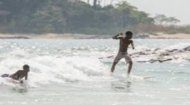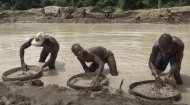|
|
|
Sierra Leone Civil War |
Sierra Leone Civil War |
Sierra Leone Civil War | Sierra Leone Civil War |
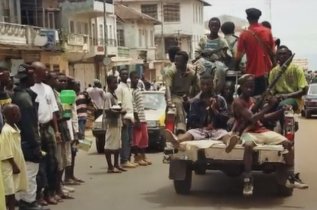
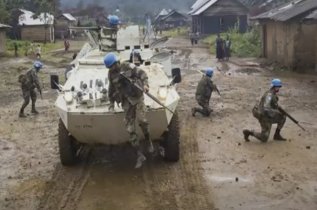 |
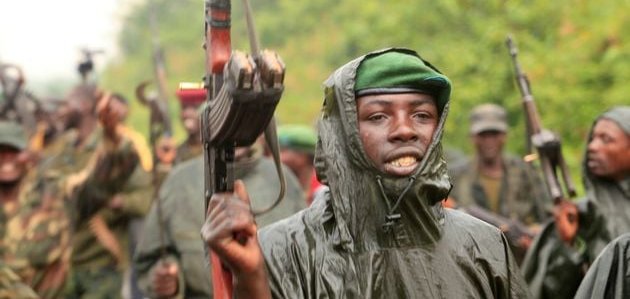
|
One of these child soldiers explains his involvement, "One day we attacked some soldiers from Guinea. I hid behind a tree then I shot him. After I killed him, I took his AK-47 rifle to my boss and said 'look, I have killed a soldier.' Because the man I killed was a sergeant they made me a sergeant in the rebel army. I was only eight or nine years old. Next they made me the commander of all the small boys in the rebel army." Such memories are hard for grown men at war but for emotionally immature children, such scenes scar for life. Another seven year old who witnessed the murder of his parents and was taken by the rebels to be trained as another of the child soldiers in Sierra Leone stated that he would have done 'what he had to do' to survive, but added 'I only want to go to school.' So, where did these child soldiers in Sierra Leone come from? Many of the children who were recruited as child soldiers had fled Liberia during the civil war there and some 80,000 of them were encamped on the Liberian - Sierra Leone border, frightened and destitute. Their numbers were swelled by many more children fleeing the violence in Sierra Leone and together they provided a fertile recruiting ground; you either enlisted and did as you were told, or a bullet through your head would teach others that you should have joined up. Whilst the exact numbers of child soldiers in Sierra Leone war remains unknown, at one point the government forces, let alone the rebels, were comprised by a quarter of such children under the age of 18 yrs. They were used for guarding diamond miners, attacking villages, committing atrocities and sexual exploitation. As noted above, President Kabbah had fled to Guinea in search of support against the new junta and found it in Economic Community of West African States Monitoring Group (ECOMOG) an agreement between the armies of west Africa to work together primarily led by Nigerian troops and financed by the Nigerian economy. ECOMOG was appalled at the level of violence that erupted after Koroma had declared the war over and it marched on the capital city of Freetown in support of the exiled Kabbah government driving the rebels out, paving the way for Kabbah's return in March 1998 by which time Sankoh had been imprisoned and his place taken by Sam Bokari, a man known for his brutal tactics including rape, murder and forced amputation. However early in January of the following year, the RUF marched back into Freetown temporarily ousting the ECOMOG troops in battles that saw 5000 dead before they were again forced to flee the city. By now the Sierra Leone civil war had been raging for eight years so when in May 1999 a ceasefire was called, there was cautious optimism for the talks convened in Togo that saw Sankoh of the RUF released from prison and made vice-president of Sierra Leone with control over the diamond mines in exchange for acceptance of UN peacekeeping troops. The Lamo Peace Accord came under pressure just over a year later when RUF rebels, led by Sam Bokari, again advanced on Freetown killing and abducted hundreds of UN peacekeepers. That year, 2000, saw governments such as that of the UK intervene to get their nationals out of Sierra Leone, however the tide was turning and by the spring of 2001 the UN had begun to secure the area and disarm the rebels, which saw 45,000 fighters disarmed by the time the war was formally declared over in January 2002. Kabbah went on to secure a victory in subsequent elections whilst Sankoh died whilst awaiting trial for war crimes. The video (above) explains the Sierra Leone civil war in more detail. |

